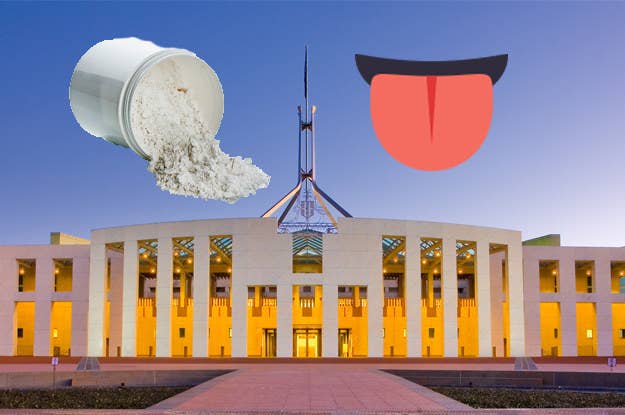
A Parliament House staff member said his only concern when he licked his finger and tasted an unidentified white power found in a public area last year was whether it was salt or sugar.
The security scare, which closed down part of the building, took place in November, during a week when politicians weren't in Canberra but parliament was open to staff and members of the public.
On Monday, Labor senator Kimberley Kitching asked why Graeme Anderson, the assistant secretary of the security branch of the Department of Parliamentary Services, decided to wet his finger, stick it in the white powder and pop it back in his mouth.
"My very basic Googling of anthrax is that the spores don't have a characteristic appearance, smell or taste, so how could you rule out that it was anthrax by sight or taste? Because you dipped your finger into the substance and tasted it?" Kitching probed during a Senate Estimates hearing.
"Senator, the only question in my mind was whether that substance was salt or sugar," Anderson said.
The former Australian (AFP) officer told Estimates there was no evidence the white powder found on a railing near the Queens Terrace public cafe in Parliament House was a chemical or biological threat, so he decided to taste it. It turned out to be sugar.
"I handled that incident in exactly the same way I would have handled that incident if I had still been in the AFP," he said. "We made risk assessments based on two factors: consequence and likelihood. I made the assessment based on logical probabilities and not irrational possibilities."
Labor's @kimbakit asking a DPS staffer why he licked his finger and tasted unidentifiable white powder (that could… https://t.co/jBmI6D1xRU
Labor refused to let up, and continued to ask why the incident wasn't treated more seriously.
"How did you know it was non-suspicious?" Kitching queried.
"Because there was no evidence that it was suspicious," Anderson replied.
"But there was there was an out-of-place white power," she fired back.
"No, what there was was sugar, on the balustrade, near the proximity of the Queen's Terrace Cafe," he said.
"You're braver than I am," Kitching said.
"There's nothing brave about it, senator," Anderson said. "If it was anthrax, we were already exposed to anthrax, and tasting it was immaterial to whether we would have been exposed or not exposed to anthrax. I would reassure you that this was not consistent with any biological threat. This was not anything other than what it was, which was sugar out of place."
This was one of around five "power out of place" security incidents reported in Parliament House since July last year.
During incidents staff are supposed to cordon off the area, call a Hazmat team, inform the AFP and test the powder with a mobile testing device that is housed the parliamentary basement.
Anderson said the mobile testing device was not deployed in November because he decided it was not "needed" as he deemed the powder to be a non-suspicious "Type 1" substance. Either sugar or salt.
"How do you distinguish between type I and type II?" Kitching asked.
By tasting it, it turns out.
The testing devices were used twice in January when the AFP closed off areas of the building after finding white powder.
Onlookers were reportedly "shocked" when Anderson tasted the loose powder before it was identified.
